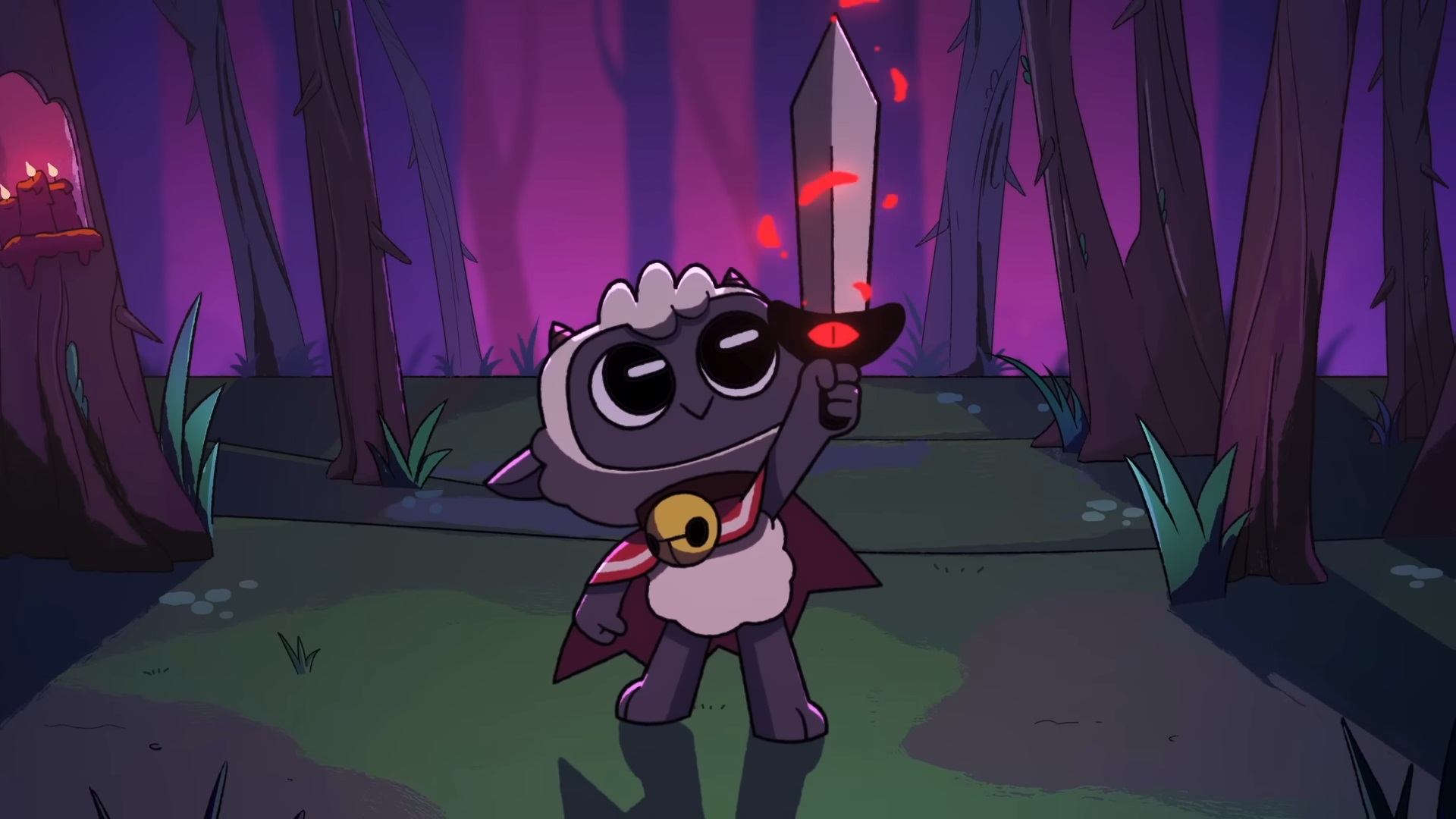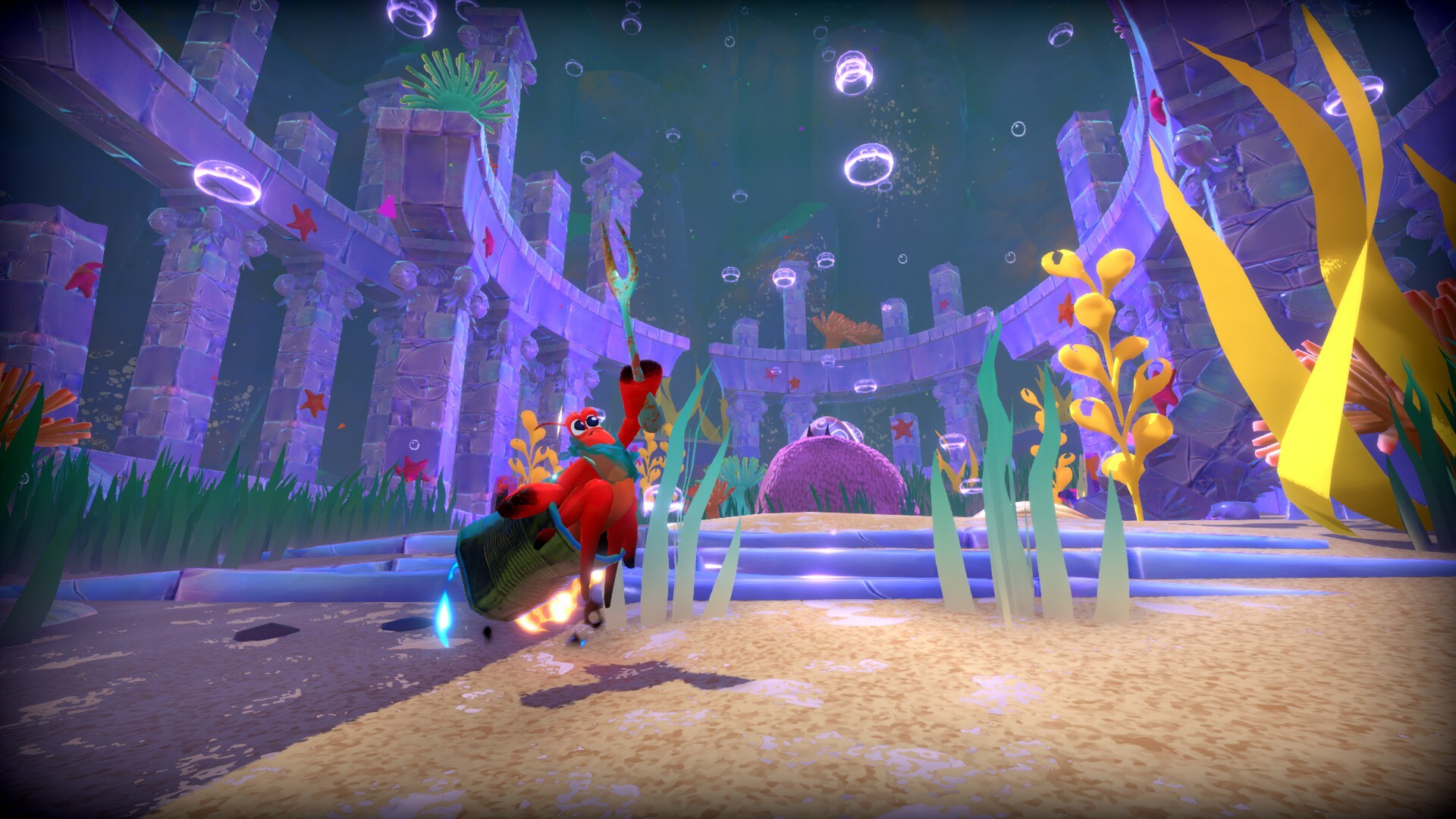Game devs react to Unity's updated fee and apology: some "deeply happy," others still worried for the future and eyeing different engines
Many key concerns have been addressed, but the stain of the fee remains

Unity has now formally apologized for the retroactive install fee it abruptly announced earlier this month to the shock of countless game developers, relaxing or removing several key rules but not eliminating the fee altogether.
10 game developers previously told GamesRadar+ that the install fee was a major threat to everyone, including gamers, and many were actively looking to change engines. These developers worried that no response could make up for the harm that Unity's rash actions had caused. I spoke to several of those developers, and some others, again today, and their general consensus thus far is that Unity's revised proposal is miles better than the original, unthinkable policy, but some fears remain given how the fee was handled to begin with.
Buy Cult of the Lamb now, cause we're deleting it on Jan 1st. 😘 https://t.co/nSWg9DP0shSeptember 12, 2023
Assuming they clear the $1 million 12-month revenue threshold, Unity devs will now be given a choice between a 2.5% revenue share model or a "self-reported" fee once again based on new installs, with the cheaper option "always" being billed. Unreal, another hugely popular game engine, notably charges devs about 5% on revenue share, but without Unity's non-trivial subscription fee.
Relative to the bar being on the floor, this is an improvement.
Gregorios Kythreotis
Games made with the free Personal version of Unity will be exempt from these fees, and Unity has also assured devs that their current LTS (essentially, the terms of service for the engine's Long Term Support release) will apply as long as they stay on that version of the engine. Existing Unity games, including those currently in development but unreleased, will not be hit by the fee when it arrives in 2024, unless the devs upgrade to the new version of Unity. This clause should prevent such retroactive changes from disrupting plans in the future, which was a major concern for many devs worried about another rug-pull, but some devs believe it's still not necessarily watertight.
"This is a welcome ‘clarification’ from Unity and I think their calculator is something that helps understand the repercussions of these changes," says Gregorios Kythreotis, creative director at Sable studio Shedworks. "However, this is only an improvement on what were ridiculous and unfeasible terms to begin with. If Unity were presenting a massive price increase like this (from Plus to Pro and 2.5%) off the bat, I don’t think people would be happy. However, relative to the bar being on the floor, this is an improvement.
"Ultimately, the financial implications short to mid-term are not the issue here," Kythreotis concludes, "the problem is the way they have treated their community of developers. It’s suddenly thrown into question whether or not to recommend new developers and whether students should learn Unity or not."
is it perfect? no! but at least we can all ship our games with peace of mind and make an informed decision for the next oneSeptember 22, 2023
Vlambeer co-founder and industry consultant Rami Ismail, who is overall optimistic about Unity's update, agrees that "there's a long road ahead to restoring trust - and some of their ubiquity might be forever lost, including in education."
Sign up to the GamesRadar+ Newsletter
Weekly digests, tales from the communities you love, and more
"Right now, developers want reassurances that terms won't get changed on them again, and given the broken trust, that might be impossible to do," Ismail says. "I know how many indie developers, business development folks, and Unity employees worked tirelessly to undo this unparalleled executive misfire, how many Unity folks put themselves out there to reassure, communicate, and champion the developers. It's strange to know many people who worked and negotiated for a full week will never be acknowledged for having had such an effect on this outcome, but I hope they know that their efforts are appreciated."
Ismail praises the "stable, apologetic, but forward-facing" open letter from Unity Create head Marc Whitten, and Unity's decision to expand the Personal tier of its subscription, but focuses more on the engine's terms of service and revenue share propositions.
"Being certain your engine version is bound to those terms is reassuring, although not fully, as often title support and future ports require updates beyond a single LTS version," he reasons. "Unity needs a way to assure developers future versions won't spring similar changes on them.
"The revenue share is really what everyone wanted. This is now the industry's most complex revenue share, and I'm still not sure how devs are supposed to report something as untrackable as 'engagements' – but being able to go 'here's 2.5% of the revenue' means every edge case is resolved."
re: unityits a bandaid/offramp so you can finish your current projects without too much worry, but going forward the cost for unity is now very comparable to Unreal (unity 2.5% with a per-seat subscription license, vs unreal 5% with no subscription fee). So go on, compareSeptember 22, 2023
Strange Scaffold head Xalavier Nelson is relieved: "If this [LTS] policy is indeed held to, it means developers like myself now making our most ambitious, polished projects yet, having invested trust into Unity to host those projects, can finish them safely. I'm deeply happy to see these changes."
The End is Nigh and The Basement Collection's Tyler Glaiel, who is not currently working with Unity but has used it in the past, reckons that between Unity, options like Godot, and Unreal, "that choice is now really heavily leaning Unreal."
"Their changes seem like a stopgap to prevent current devs from migrating away from Unity immediately," he argues. "That's fair, anyone with a project in the works can safely finish it now without concern for the pricing models changing under them.
It's getting harder to justify, 'why not just use Unreal instead.'
Tyler Glaiel
"Unity LTS releases seem to be about once per year. While 'you can stay on the TOS for the LTS version you are using' seems good, big games take a lot longer than one year to make, so you can still be essentially forced to accept a new TOS if you want to upgrade. If Unity was as stable and feature-full as Unreal was, this would be less of an issue, but it kind of isn't, and they haven't done anything to indicate that they won't just keep raising the price in the future. So if you're starting a big Unity project, you have to take into consideration the fact that it still might increase the cost again before you can release, and that you might still need to upgrade to a newer LTS to ship on newer hardware."
More to the point, Glaiel says "one of the big reasons to pick Unity over Unreal was the lack of revshare. Because Unreal is a more capable engine with a lot of absolute cutting-edge tech in it. It's why AAA companies use it, it's why so many AAA companies have abandoned their own in-house engines in favor of Unreal. With both engines having similar costs now, it's getting harder to justify, 'why not just use Unreal instead.' Epic knows this and I wouldn't be surprised to see them drop their revshare percent as a response to this."

Getting so publicly called out is a very difficult position to get yourself out of.
Antoine Bordeleau
There's optimism in the air, which is a massive upgrade over the panic of a few weeks ago, but it's not all sunny. "I mean... what were they going to do at this point but apologize?" asks Antoine Bordeleau, general manager at indie specialist marketing agency Purple is Royal. "They had to find a way to present this as a 'we listened' kind of thing, but this all could have gone down so much easier if they had done that listening and feedback-gathering before announcing something so vague and concerning in the first place.
"When you are a vital part of a creative ecosystem, and literally the backbone behind a ton of creators' livelihoods, you absolutely cannot put forth public statements with blind angles all around them ... I think Unity will have a hard time healing the breach of trust that they created here. The rift is simply too large, and getting so publicly called out is a very difficult position to get yourself out of."
Hoversport Studios co-owner Maxwell Kunze is "relieved" that current projects won't be hit by Unity's fee, but isn't running back to Unity with open arms. "I have lost way too much trust," he says. He also highlights the lingering confusion over how installs are meant to be tracked for this new revenue share alternative.
It's nice to know that while Unity doesn't have my back, the indie game dev community does.
Maxwell Kunze
"The fact that they still want it to exist at all, even if the numbers are self-reported, is suspicious to me," he says of the install fee. "While I am glad that this likely means we don't need to worry about the hypotheticals of 'install bombing' or piracy affecting a developer's income, I worry that this is some tactic to either normalize installations being a payment metric, or that Unity stands to gain something from the data alone that I am unaware of.
"Thankfully, it's not all bad news," Kunze adds. "I am incredibly thankful that the industry as a whole has really come together on this issue. I was incredibly proud to see so many people speak out against the changes they saw as unjust, and was especially happy to see people come together in support for other game development tools like Godot.
"I was also impressed by the fact that a few groups attempted to create tools to assist in the wildly impractical task of switching to an entire new engine. Honestly, that's just so crazy to see. It's heartwarming to know that if an entire game engine suddenly became unviable, there are still enough insane developers that would be willing to assist in the nightmare of a task it would be to switch engines. So to end this horrible situation with a positive, it's nice to know that while Unity doesn't have my back, the indie game dev community does."
Terraria developer Re-Logic, which also doesn't use Unity, donated over $200,000 to open-source competitors including Godot in condemnation of Unity's proposed fee.

Austin has been a game journalist for 12 years, having freelanced for the likes of PC Gamer, Eurogamer, IGN, Sports Illustrated, and more while finishing his journalism degree. He's been with GamesRadar+ since 2019. They've yet to realize his position is a cover for his career-spanning Destiny column, and he's kept the ruse going with a lot of news and the occasional feature, all while playing as many roguelikes as possible.


